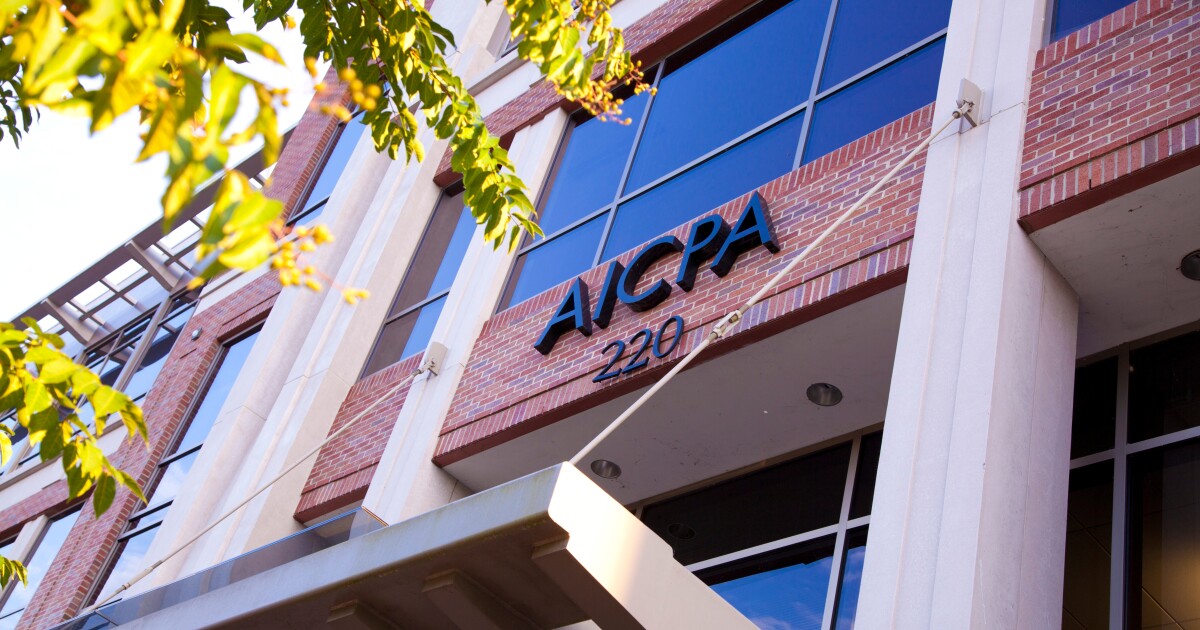The American Institute of CPAs and the National Association of State Boards of Accountancy have proposed changes in the Uniform Accountancy Act model legislation used by states to provide an additional path to CPA licensure, while preserving CPA mobility across the states.
The AICPA and NASBA asked the joint UAA committee to draft proposed model law language in two main areas: A bachelor’s degree plus two years of experience as a pathway to licensure that incorporates a broad role for experience, to be determined at the state level; and individual-based practice privilege that incorporates a CPA’s ability to practice across state lines.
The recommended changes come as state CPA societies and lawmakers in various states have been looking at ways to attract more young people to the accounting profession, providing more flexibility in attaining a CPA license without jeopardizing the ability of CPAs to practice across state lines. Last month, Ohio’s governor signed into law a bill backed by the Ohio Society of CPAs that provides alternatives to the traditional 150-credit hour requirement.
The AICPA and NASBA have been looking at recommendations through a National Pipeline Advisory Group, which issued a report last year.
The comment letters received in response to two recent AICPA and NASBA exposure drafts, along with early 2025 state legislative activity such as Ohio’s indicate a growing preference for an individual practice privilege and a bachelor’s degree plus two years of experience path. Feedback also supported a more in-depth study of competencies as they relate to the experience requirement.
“The accounting profession has seen a remarkable convergence in recent weeks of stakeholders around flexibility that creates greater access for those who are interested in pursuing a career in accounting,” said Susan Coffey, CEO of public accounting at the Association of International Certified Professional Accountants. “A bachelor’s plus two years of experience path, in which states define the needed skills and competencies, is responsive to the market and protects the public.”
The proposal would maintain the existing two pathways of a master’s degree plus one year of experience, as well as a bachelor’s degree plus 30 credits plus one year of experience.
The UAA is jointly published by AICPA and NASBA and gives state legislatures and boards of accountancy a national model they can either adopt as is or adapt to meet the needs of each jurisdiction. The proposed UAA language will be open for public comment for 60 days.
“We look forward to the expertise and perspectives the 55 U.S. licensing jurisdictions will share during this next comment period,” said NASBA president and CEO Daniel Dustin in a statement. “We believe that any new proposal, and the feedback received from all stakeholders, will not only result in a thriving profession but also one that, because it keeps its eye on protecting the public, will allow that public to continue to trust in a CPA’s work.”
The AICPA and NASBA opened a call for comments last September asking about a proposed initiative to help CPA candidates meet initial licensure requirements by exhibiting their competency in specific professional and technical areas. Later that month, they also issued a set of corresponding UAA model legislative amendments for discussion. Comments on the proposals can be accessed through the NASBA and AICPA websites. The feedback indicated support for the concept of competencies, but not as proposed. Based on the volume and nature of responses, the AICPA and NASBA agreed to table the framework for intended purposes.
“Through continued collaboration and alignment, we’ll be able to achieve this shared goal of growing pathways into the profession, while protecting the public,” said Carla McCall, who serves as AICPA chair and co-chair of the Association of International Certified Professional Accountants. “This is an important and exciting step for our profession. We are ready to get this done.”
“The input and feedback from the members of the Boards of Accountancy and key stakeholders in the accounting profession is crucial to the UAA process,” said NASBA chair Maria Caldwell in a statement. “We appreciate the continued collaboration and expertise of the members of the joint UAA Committee.”
The feedback received on last September’s proposals indicated support for the concept of competencies, but not as proposed. Based on the volume and nature of responses, the AICPA and NASBA agreed to table the framework for intended purposes.
“As such, we are exploring plans for a longer-term, data-driven approach working with stakeholders to understand how competencies can help shape the future of our profession,” Coffey stated. “This aligns with recommendations made in 2024 by the National Pipeline Advisory Group and reinforces the profession’s longstanding commitment to competence as a core principle already in our profession’s Code of Professional Conduct and in the UAA.”
The AICPA and NASBA plan to work to redefine the UAA processes for greater inclusivity and transparency, as well as devote more resources to helping CPAs with navigating practice mobility as states enact legislation.


 Economics1 week ago
Economics1 week ago
 Economics1 week ago
Economics1 week ago
 Economics6 days ago
Economics6 days ago
 Finance1 week ago
Finance1 week ago
 Economics1 week ago
Economics1 week ago
 Blog Post6 days ago
Blog Post6 days ago
 Personal Finance6 days ago
Personal Finance6 days ago
 Finance6 days ago
Finance6 days ago












